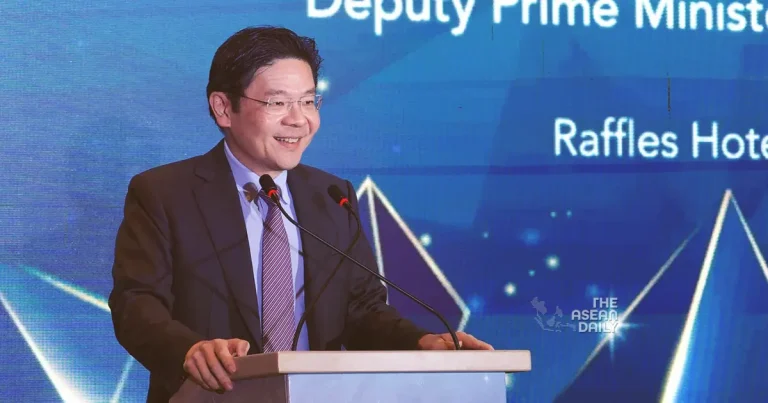6-11-2023 (SINGAPORE) In a significant political development, Singapore’s Prime Minister, Lee Hsien Loong, announced on Sunday his intention to transfer leadership of the ruling People’s Action Party (PAP) to Deputy Prime Minister Lawrence Wong. This handover is slated to occur at the party’s 70th-anniversary celebrations in November 2024, a year ahead of the scheduled general election.
The PAP, which has maintained its hold on Singapore since the nation’s independence in 1965, is expected to continue its political dominance, further cementing its legacy. This transition will make Lawrence Wong the fourth premier of Singapore, succeeding Lee Hsien Loong.
Lee, who is the eldest son of Singapore’s founding father, Lee Kuan Yew, has held the position of party secretary-general and prime minister since 2004. Last year, he officially designated Lawrence Wong, who also serves as the finance minister, as his successor.
Speaking at the annual party conference, Lee Hsien Loong expressed his confidence in Lawrence Wong and his team, stating that there was no reason to delay the political transition. He said, “Therefore, I intend to hand over to DPM Lawrence before the next general election.” Lee, who is 71 years old, initially planned to transfer leadership before his 70th birthday but postponed the decision due to the COVID-19 pandemic.
In response to this significant announcement, Lawrence Wong, aged 50, stated, “I am ready for my next assignment” in an earlier address at the conference. Wong’s prominence grew significantly during his role as co-head of the government’s COVID-19 task force, where he played a pivotal role in implementing pandemic-related measures, border restrictions, and contact tracing. His efforts earned widespread praise for effectively managing the pandemic, keeping infection rates low and minimizing fatalities.
Wong’s career trajectory includes serving as Lee Hsien Loong’s principal private secretary from 2005 to 2008, leading the education and national development ministries, becoming the finance minister in 2021, and assuming the role of deputy prime minister last year. He is also the deputy chairman of the sovereign wealth fund GIC and holds the position of chairman at the Monetary Authority of Singapore, the nation’s central bank.
This decision to transition leadership prior to the upcoming general election is considered a “bold move” by some analysts, though most believe it won’t significantly impact political stability. Walid Jumblatt Abdullah, a political scientist at Nanyang Technological University, suggested that the more cautious approach for the party would be for Lee to transfer power after the general election, allowing Wong more time to build rapport with the electorate.
Nevertheless, the transition is unlikely to disrupt stability, as Lee is expected to remain involved in the cabinet in some capacity. In the previous election held in 2020 amid the challenges of the pandemic, the PAP secured 83 out of 93 parliamentary seats. However, the party’s share of the popular vote dropped to a near-record low, and the opposition won ten seats, a historic development in Singapore’s political landscape. Political scientist Chong Ja Ian, from the National University of Singapore, emphasized the significance of Wong needing to secure his mandate in the next election.




